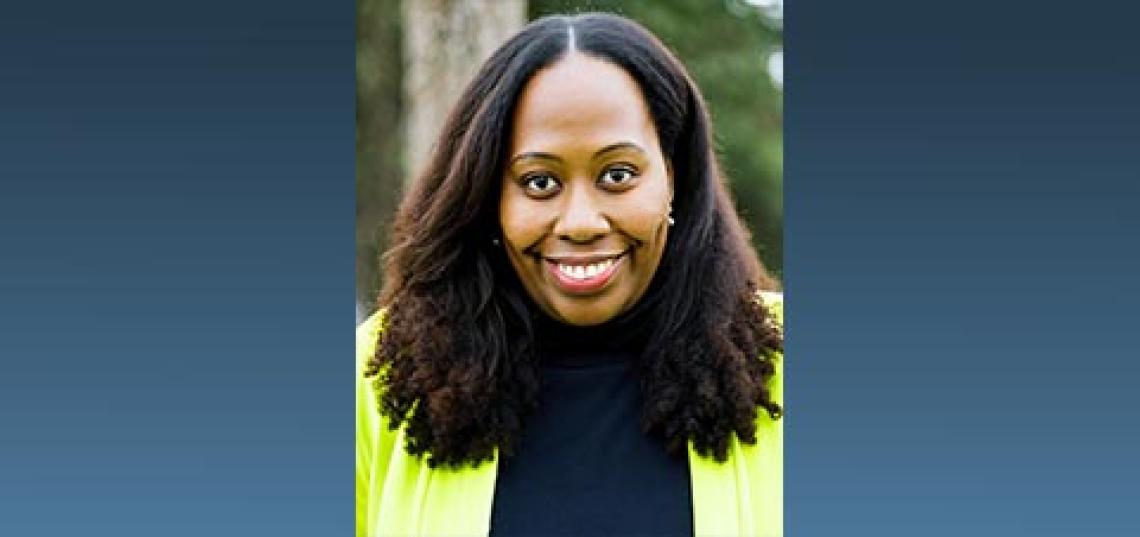
Monique Freeman earned a bachelor’s degree from The College of New Jersey (TCNJ) during the 2008 economic crisis. Post-graduation, she began working in magazine journalism until 2010, when she realized she was ready for a change. At the time, she was freelancing and had ended a temporary editorial assistant position.
Freeman notes she struggled with whether she wanted to pursue a magazine career or try something different. “[Graduating] in the height of the recession and despite interning all throughout college, including an internship at the American Society of Magazine Editors (ASME), I still couldn’t land that full-time editorial position I had always dreamed of having. I was also starting to witness the beginning stages of the transformation from print to digital in magazine publishing. It was then that I had an epiphany. I realized that the passion I had for writing was not about the medium/format and more about the art of storytelling itself.”
Since completing a Master of Communication and Media (MCM) degree at SC&I (the degree was formerly named the Master of Communication and Information Studies (MCIS)), Freeman has worked for several companies including Prudential Financial and OfColor. Today, Freeman is Head of Growth Communications and Public Relations Lead for Commercial Businesses at Equitable.
In our Q&A, Freeman describes the career path she has taken, how obtaining an MCM at Rutgers SC&I has helped her achieve her professional goals and her thoughts about the future of the communications and public relations field.
How do you think the MCM program at Rutgers has helped elevate your career?
MF: The MCM program at Rutgers didn’t just elevate my career – it transformed it completely as it enabled me to make a much smoother transition from journalism into the public relations field. I was exposed to communication theory, strategic communications, organizational communication, corporate social responsibility and more – all of which have equipped me in various PR and communications roles I’ve held since graduating from the program. The program also provided me with an opportunity to make meaningful connections with classmates and professors, all while gaining real-world experience. In fact, one of the colleagues I worked with during my fellowship ultimately ended up being the person who helped me land my first PR job out of graduate school, which was at a boutique agency in New York City.
What are the valuable lessons you learned during your time pursuing the master’s?
MF: I learned many valuable lessons, but one that stands out the most was about the value of soft skills, particularly collaboration. I majored in English Literature and minored in Journalism during undergraduate school, so in those areas a lot of my output was individually focused, whereas when I pursued my Master’s I was evaluated on how well I worked with others just as much as I was evaluated on my personal outputs. The majority of the courses I took involved group communications projects where I was working with three or more other classmates to solve an organizational communication challenge or develop a communications plan. While each one of us might have come to the table with a point of view, in the end, we needed to build a consensus and provide a recommendation that we could all get behind. In my current PR role at a financial services company, I often partner with my communications colleagues and business partners to do the very same things, so the soft skills I learned in the Master’s program were immensely valuable and are just as applicable today as they were when I was at Rutgers.
Was there a specific professor that was memorable or gave you good advice for your professional career?
MF: Professor Michael Bzdak, Ph.D., who taught a Corporate Social Responsibility (CSR) course that I enrolled in was a professor that stood out to me for several reasons. It was in that course that I was exposed to company ethics and corporate social responsibility and how it can impact an organization’s reputation among its employees, customers, and community. He was extremely knowledgeable -- his day job involved directing J&J’s Employee Engagement team within the company’s CSR organization -- and he was down to earth. One of the most memorable parts of the course was the group case study project where my classmates and I were assigned a well-known company and charged with identifying what missteps damaged the company’s reputation, how well the company responded and whether their existing CSR initiatives were genuine and making a real impact in the community.
How do you see the landscape of communication, journalism, and media evolving in the coming years?
MF: In the public relations field, I think the biggest thing that will evolve in the coming years is the role that analytics can play in measuring the value of media relations. Whether you are a PR practitioner working in-house or at an agency, more and more companies expect you to be able to quantitatively demonstrate the impact of media relations and show how it is helping to drive business results. That’s not always an easy thing to do, but as AI takes off and predictive analytics and media analytics becomes more sophisticated, I think PR/media measurement and analytics is going to be a discipline within the communications industry that will grow immensely.
Learn more about the Master of Communication and Media (MCM) at the Rutgers School of Communication and Information on the website.
